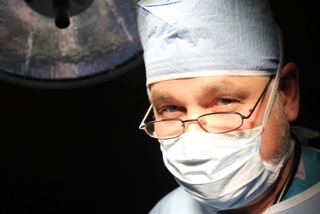
The American Medical Association (AMA) – has officially recognized obesity as a disease, joining the scientists of the NIH, a move that could encourage physicians to pay more attention to the importance of addressing obesity, and spur more insurers to pay for treatments. Contrary to popular stigma obesity is not the result of eating too much or exercising too little.
Research has shown that obesity is far more complex than many people, and most physicians, understand.
Arguments Why Obesity Shouldn’t Be a Disease – and The Rebuttals
(1) Obesity is preventable
Rebuttal: so is most heart disease, lung cancer, type 2 diabetes, trauma, food poisoning, osteoarthritis, and suicide. To state that something should not be a disease because it can be prevented is naive. First, we don’t know if it can be prevented – that is, while some would love to say all people have to do is eat less, the reality is we don’t know. Ever meet someone who eats junk food and never gains a pound – and yet you watch your overweight friend struggle with diet after diet?
Does this mean we should stop funding heart disease from those people who smoke, or those who have eaten the “wrong” diet? Never mind that we don’t know what the “right” diet is to prevent heart disease, or even obesity.
(2) Now that it is a disease it will cost us more to treat it
Rebuttal: Treating obesity is not popular among physicians. We do not have drugs that are effective, and less than 1% of those who meet the criteria for surgery get it. But not treating obesity does cost us – it leads to increased costs for heart disease, hypertension, sleep apnea, joint disease, and cancer. Today the US spends over 190 billion a year on health care related to obesity.
If we develop and have an effective treatment, then we can prevent a lot of other diseases, or manage them much better than we do now. The average price of weight loss surgery is far less than the average price of treatment of heart disease, or diabetes, or disability from obesity.
(3) Calling obesity a disease will increase the stigma
Rebuttal: Could the stigma for obesity could be any worse than it is? Teenage children who are obese, when tested with quality of life measures have the same outlook as teenagers with terminal cancer.
(4) Calling obesity a disease will lead to a lack of personal responsibility for the disease
Rebuttal: Obesity is not a disease of personal responsibility. Does the person who eats “anything they want” and stay skinny have a lack of personal responsibility? Obesity may be a symptom of other underlying disorders, how they process food, or the choices. In 23 years of treating obesity most patients have tried multiple diets, gym memberships, or pills to try to loose weight and keep it off.
(5) It is going to increase health care costs by increasing physician bills, prescriptions, surgery, and devices
Rebuttal: Most primary care physicians have no clue or desire to treat obesity. Few physicians want to treat obesity. Most general surgeons have no interest in doing weight loss surgery. If an effective pill, coaching, or workout routine cracks obesity – it will be quite popular, and no doubt every obese person will flock to it.
(6) The AMA overruled its own committee
Rebuttal: They did because the committee could not come up with a definition of disease. Imagine the other “diseases” out there we would have to ignore because of a lack of definition
(7) Obesity can be cured with (……) – fill in your favorite diet or workout routine
Rebuttal: If you go to primal diet sites, vegan diet sites, raw food diet sites all of them are saying if only they follow our routine they would not be fat and live a healthier lifestyle. For every confirmation bias of those who adopt those diets, there are people in my practice who have been unable to loose weight and keep it off following those diets. We just don’t know what people can do, follow, or if it really makes a difference.
———————————————————————-
We surgeons continue to develop operations to fight obesity, but all are combined with some lifestyle changes. And no matter how safe any operation is, surgery has morbidity and mortality associated with it .
